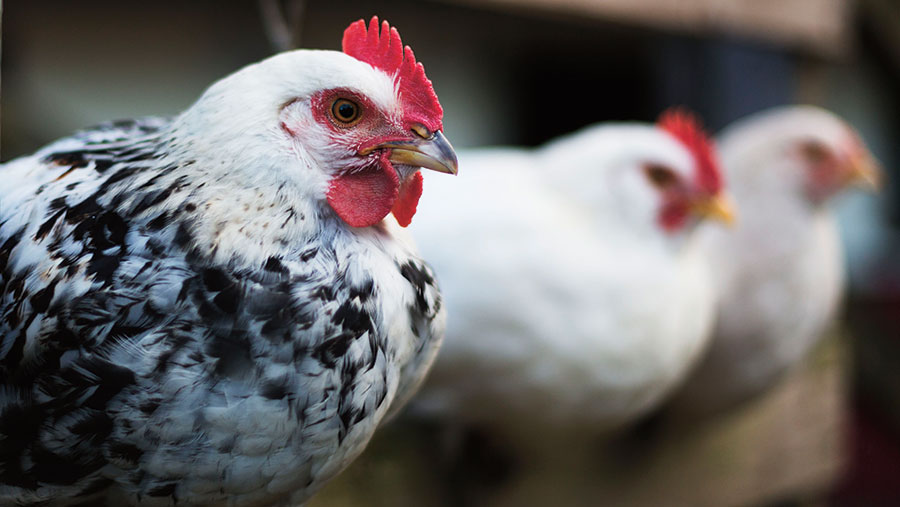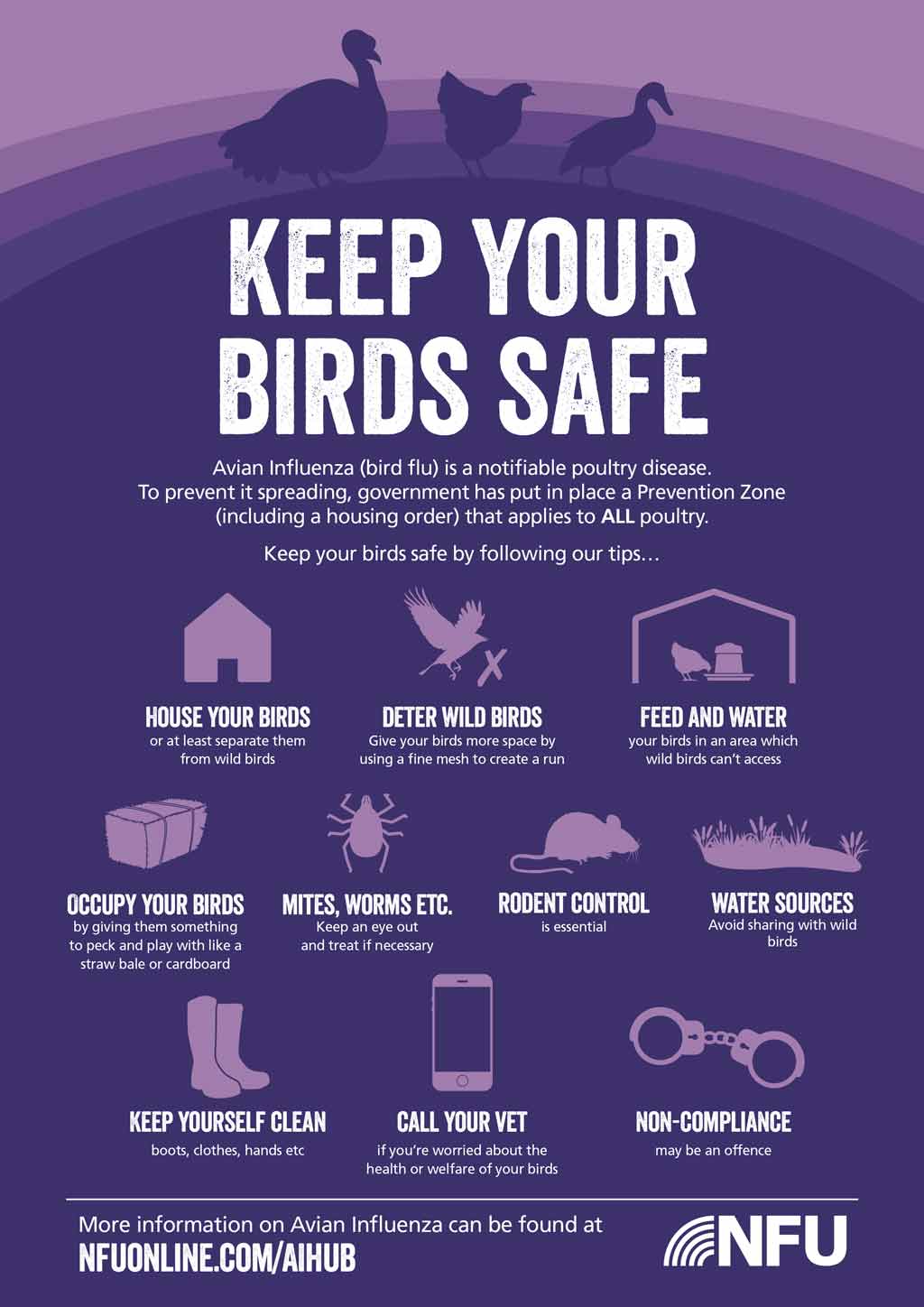Backyard flock keepers told to tighten biosecurity
 © Design Pics Inc/Rex/Shutterstock
© Design Pics Inc/Rex/Shutterstock Backyard poultry keepers and farmers with small, non-commercial flocks are being reminded to maintain the tightest biosecurity as the threat of avian influenza (AI) remains officially “high”.
With a Prevention Zone affecting the whole of the country following several discoveries of AI in wild birds and three outbreaks in poultry flocks (of which two were small backyard flocks), the NFU has produced a new poster targeted at smaller poultry keepers.
Amongst the essential advice, keepers are urged to house their birds, or at least keep them separate from wild birds, feed and water them in areas that wild birds can’t access, and deter wild birds, using fine mesh to create a run if possible.
See also: ‘No region safe from avian influenza’
If birds are confined it is important to give them pecking objects to keep them occupied, and to apply proper rodent control. Human cleanliness is also important to minimise the risk of disease spread.
 The NFU is encouraging members to print off the poster (PDF)and distribute it locally, including sticking it on communal notice boards or even handing it to neighbours who are known to keep poultry.
The NFU is encouraging members to print off the poster (PDF)and distribute it locally, including sticking it on communal notice boards or even handing it to neighbours who are known to keep poultry.
NFU chief poultry adviser Gary Ford said: “I would urge all of our poultry members to continue to practice enhanced biosecurity at all times and to be vigilant for signs of disease.
“I would also ask that other people who keep hens, geese and ducks follow our tips and Defra’s advice as they have an important part to play in reducing the risk of AI both to their birds as well as the commercial poultry sector.”
According to the NFU, just 1g of infected faeces is enough to cause one million birds to die.
Multiple pathways
The Prevention Zone is scheduled to stay in place until 28 February, meaning large numbers of the UK’s free-range flock is now housed.
But, according to Defra’s International Disease Monitoring team, “there are several pathways for the introduction of any notifiable avian disease into a poultry farm. Housing alone will not be enough to reduce the risk of some of these pathways.
“Environmental contamination will remain a significant hazard, especially if wild waterfowl or gulls have regular access to the site or contaminate the local area around the houses. Personal biosecurity is key to helping prevent contamination from being brought into a poultry house.”
For the latest poultry news, visit Poultry World’s new website
